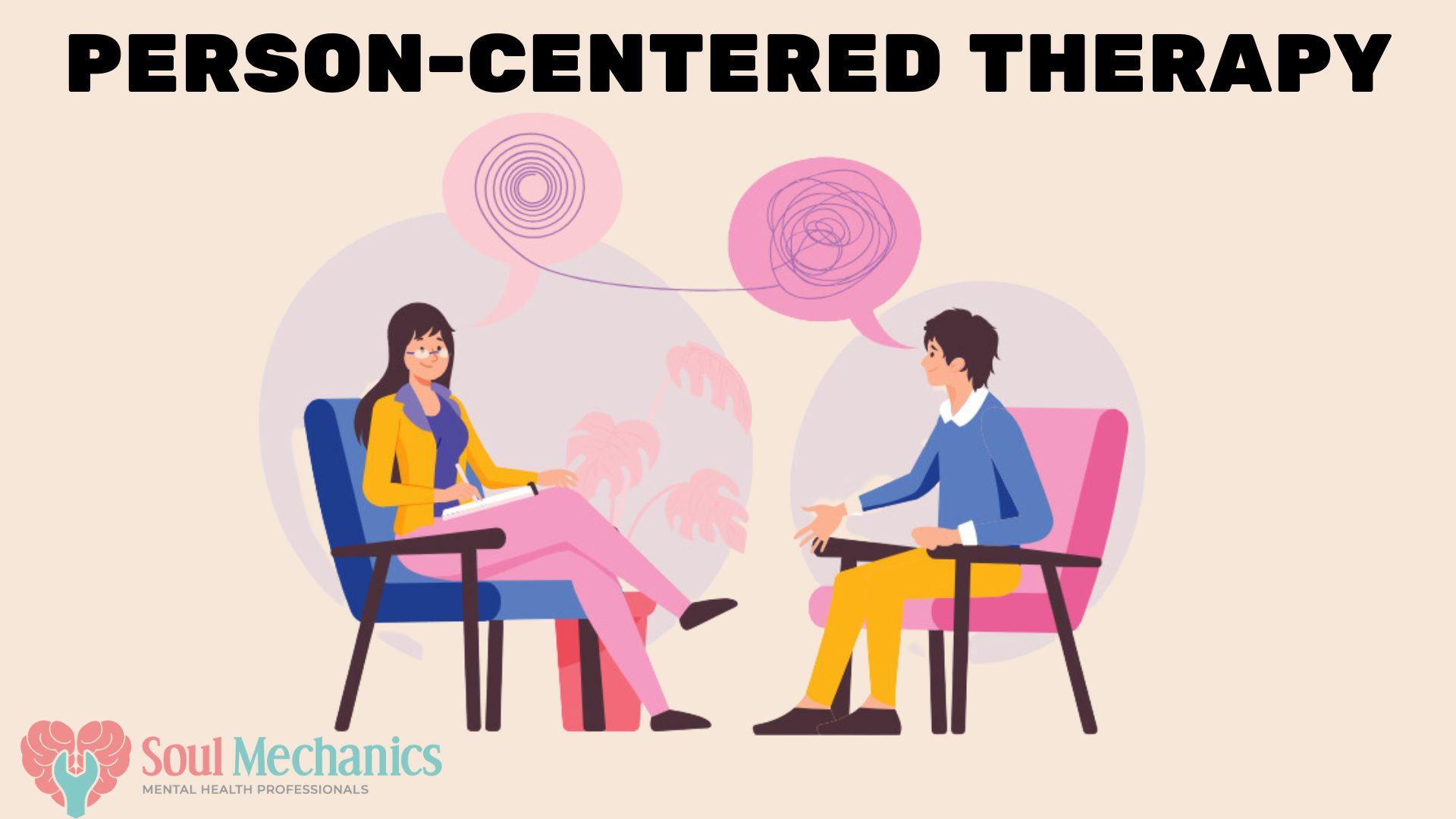Person-Centered Therapy: A Client Based Approach
Person-Centered Therapy: A Client Based Approach
Person-Centered Therapy, Psychotherapy; is a term that has become more familiar over the past few decades. Psychotherapy has been continuously growing with many different and interesting approaches. There are humanistic, cognitive, behavioural, etc types of therapy approaches. Person-centred Therapy (PCT), also known as Rogerian Therapy, is a humanistic-based therapy approach that many mental health practitioners utilize.
PCT, developed by famous psychologist Carl Rogers, revolves around one's innate capacity for self-actualization and growth. PCT emphasizes therapeutic skills such as empathy, genuineness, and unconditional positive regard in a non-judgemental environment. This further fosters self-understanding and personal development. We will further dive into the principles, techniques and benefits of PCT in this article.

Understanding Person-Centered Therapy
PCT is an approach that believes that every individual has the inner drive and potential for their healing and self-growth. In PCT, the therapist would create a non-judgmental and safe therapeutic setting for the clients to explore their emotions, thoughts, behaviours, and experiences freely without the fear of being looked down upon. The PCT-applying therapist would take up the role of facilitator and provide the clients with guidance to tap into their inner resources which would enhance their self-awareness and embark on their healing journey. Below are several core techniques that are utilized in PCT.

Key Techniques in Person-Centered Therapy
1. Unconditional Positive Regard
This technique involves the therapist providing and supporting the clients with empathy, non-judgemental, and genuine acceptance regardless of who they are or what their issue is. This supporting atmosphere creates a space for clients to feel understood and embraced, allowing them to authentically express themselves.
2. Empathy
In PCT, one of the main techniques is to empathize and understand one's emotions, experiences and opinions. This is usually done through active listening, paraphrasing and reflecting on clients' feelings and thoughts to validate the client's emotions, promote self-exploration and foster a deeper connection in the therapeutic process with the therapist.
3. Reflective Listening
Reflective listening is another important technique in PCT. Therapists often utilize this technique to clarify clients' emotions and thoughts, making them feel they are being listened to. This technique also aids clients in gaining internal insights into their issues further and facilitates them to explore further based on the gained insights.
4. Congruence
Congruence; genuineness and authenticity. The congruence in PCT refers that by being honest and transparent in the interaction with clients, therapists can create an environment which promotes openness and trust, further allowing clients to feel safe and express their true selves.

Benefits of Person-Centered Therapy
1. Increased Self-Awareness
PCT explores deeper into one's emotions, thoughts and experiences to have a better understanding towards self. Through this exploration, one can gain insights on their self such as their values, beliefs, strengths, and weaknesses, leading towards increased self-awareness.
2. Enhanced Self-Esteem
PCT creates an accepting environment during therapy sessions. This provides clients with a sense of acceptance that they are being valued and listened to, leading towards increased self-esteem and self-acceptance. Clients would gradually learn to appreciate and validate themselves and develop a more positive self-image.
3. Improved Relationships
When one can understand themselves and their experiences and develop a better sense of self-acceptance, they can establish healthier relationships with their loved ones. This is because PCT also equips one with skills to improve their communication and enhance their empathy, congruence, and unconditional positive regard which helps them to build more meaningful connections with others.
4. Personal Growth and Empowerment
Through increased self-awareness, self-acceptance, and self-understanding, one can feel more empowered and embark on their growth journey. In PCT, clients are also assisted to set their own specific goals and work towards achieving them. It involves exploring issues and working towards interventions that facilitate one's journey toward reaching their goals. This empowers them to take control of their lives and make more positive changes.

How Person-Centered Therapy Works
PCT usually involves one-to-one sessions with a trained and certified mental health practitioner, in which the therapist creates a confidential and safe space to express themselves. Through key techniques such as active listening, reflection, empathy, congruence, and unconditional positive regard, the therapist assists the clients in gaining insights and understanding about themselves. This therapeutic relationship with the mental health practitioner itself works as a catalyst for positive inner change in clients, embarking on their healing and self-growth. This process also fosters clients to understand their inner world without a sense of judgment or self-hatred.
The therapeutic relationship of the therapist and client is the heart of PCT. Therapists would encourage clients to set their goals and define their personal beliefs and values behind those goals. It helps clients to understand their reasoning behind certain goals. PCT also involves empathy, warmth, respect and genuineness from the therapist to the client, allowing them to gradually strengthen their autonomy and take the lead in their healing journey as well as their life choices.
One of the core principles of PCT is that the client has the inner capacity for growth and to understand themselves. If they are given adequate trust, embracing the environment, and being accepted for who they are, they can gradually accept themselves and get in touch with their inner self. This would start their solutions-seeking journey, leading to more positive life changes.
PCT is a widely applicable and effective therapy while working with individuals who are experiencing various mental health concerns, such as anxiety, relationship issues, depression, etc. Although it's typically practised in individual therapy, it can also be utilized in group, couple, and family therapies.

Conclusion
In short, it is crucial to take note that PCT is not a quick fix or can be applied to anyone. Just like other therapeutic approaches, PCT can be an effective therapeutic approach based on the client's needs and therapy goals. The therapy process may take time and requires active participation from both therapist and client, as it is a collaborative journey. PCT is a compassionate and empowering therapeutic approach that works on one's self-actualization and growth, finding one's path of healing and inner fulfilment.
Another interesting approach in therapy will be Psychodynamic Therapy, you can read more about it here.
For more content related to mental health do follow us on our official Instagram.

